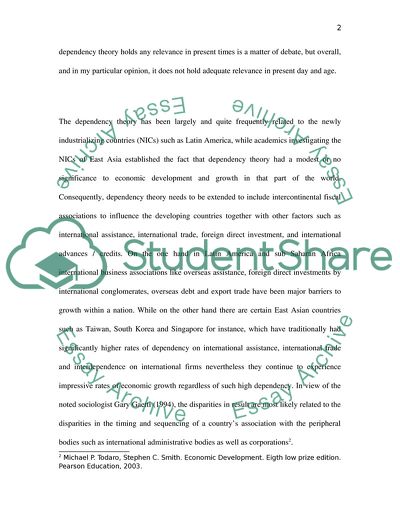Cite this document
(Is Dependency Theory Still Relevant to the World Today, or Not Assignment, n.d.)
Is Dependency Theory Still Relevant to the World Today, or Not Assignment. Retrieved from https://studentshare.org/sociology/1726160-sociology-essay-on-globalisation
Is Dependency Theory Still Relevant to the World Today, or Not Assignment. Retrieved from https://studentshare.org/sociology/1726160-sociology-essay-on-globalisation
(Is Dependency Theory Still Relevant to the World Today, or Not Assignment)
Is Dependency Theory Still Relevant to the World Today, or Not Assignment. https://studentshare.org/sociology/1726160-sociology-essay-on-globalisation.
Is Dependency Theory Still Relevant to the World Today, or Not Assignment. https://studentshare.org/sociology/1726160-sociology-essay-on-globalisation.
“Is Dependency Theory Still Relevant to the World Today, or Not Assignment”, n.d. https://studentshare.org/sociology/1726160-sociology-essay-on-globalisation.


